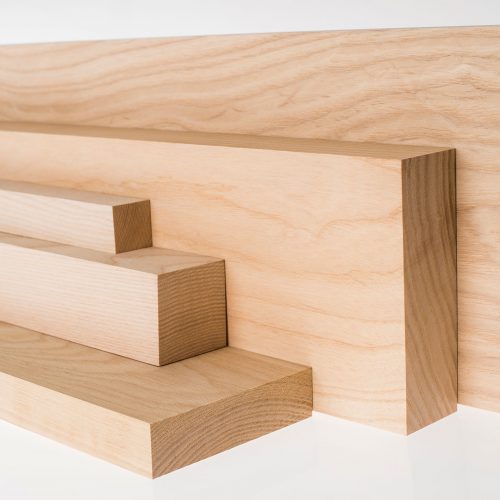Timber Choices..
Please find below a selection of our timber options. Our complete range of staircase components and handrails are all available in the following timbers. Oak, Pine, Hemlock, Ash, Sapele (Dark Hardwood) parts listed to order from the web-site. We can also offer free Timber Samples on request!
We can also supply Stairparts made to order in S/Y Pine, Tulip, Maple, Douglas Fir, Beech & Walnut.
Oak..

|
|
Oak is a timber used for internal joinery and has become very popular over the last few years. J & J Stairparts have been supplying Oak predominantly connected with the staircase industry for 25 years ie. strings, treads, newels and handrails. As a company we are very particular regarding colour matching and what will arrive on your doorstep is a timber stair parts with very little colour variation, no sapwood whatsoever and free from any knots, in fact within reason a first class product!
Pine..
|
|

|
|
Pine is a slow grown Scandinavian timber, an economical timber suitable for staining and painting. All knots in the timber are sound.
Hemlock..
|
|

|
|
Hemlock we supply is sourced from the very North USA or Southern Canada. Hemlock is only suitable for internal use, is totally free of knots and is a very clear light coloured timber. In addition it is still used very much in the staircase industry for newels, spindles and rails. It is a softwood but can be quite difficult to work unless your tools are very sharp and cut clean.
Ash..
|
|

|
|
American White Ash is a clear timber ie. free from knots and other defects. Sourced in America it is of a very high quality for use in the stair industry.
Sapele (Dark Hardwood)..
|
|

|
|
|
Sapele predominantly from West Africa is a reddish-brown hardwood. Although some parts of the Sapele logs will produce straight-grain or 'quartered' effect, generally it has a more random grain appearance, thus meaning it is liable to interlocked grain. Interlocked grain spirals around the centre of the tree thus alternating intermittently and causing a 'rough' effect, this can generally be reduced if not eliminated by heavy sanding. Sapele is used for numerous mahogany like products, for example conservatories, door frames and solid wood doors, furniture and counter tops and of course stairparts.
|
|
|
|
|
|